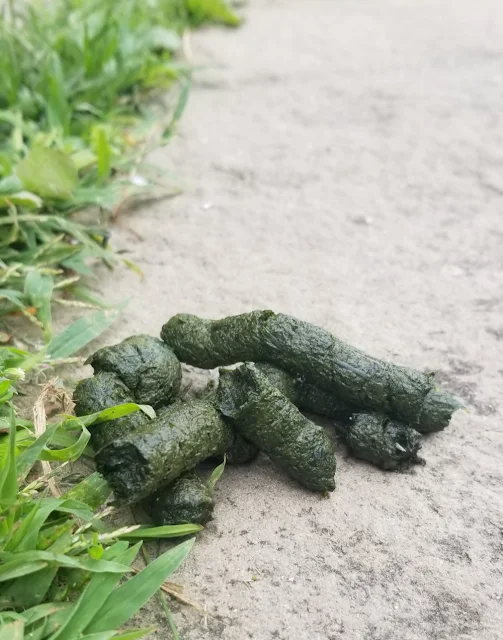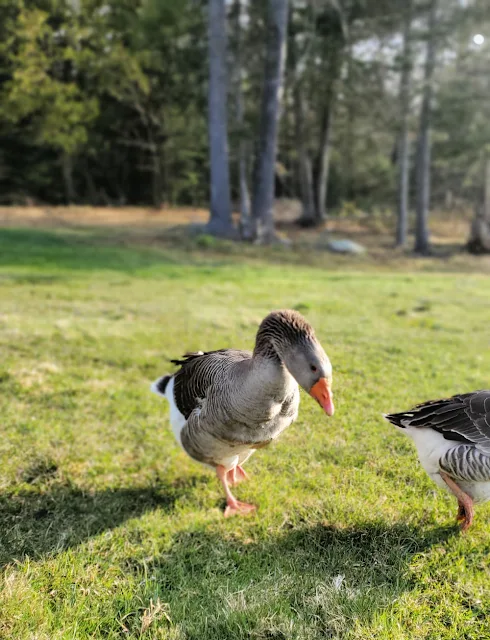Geese get a bad rap for creating a lot of poop. But is it warranted? Here's all you need to know about goose poop.
Geese really do have a reputation for pooping. A LOT. In fact, that was my husband's main reason for not wanting to add geese to our little flock.
But I manage to convince him that between the geese eating all the dandelions and then pooping all over the yard, we would have golf course-quality grass in no time.
But when we got our first trio of geese last spring, I was really curious about just how much they would poop and how much of a mess they actually would make.
And what I found out was pretty interesting.
So here's all you need to know about goose poop.
All about Goose Poop
Here's all you ever wanted to know about goose poop. And probably way more than you never knew you wanted to know !
Goose Poop Shape and Size
Goose droppings are about the size of your little finger, shaped like cigars and can range in color from green, to whitish to a light brown color, depending on what the goose has been eating.
Since our geese pretty much free range all day and during the warm months eat a diet that consists of grass, grass and more grass, along with all the dandelion greens they can find, their poop looks like grass that's been mulched or cut with the lawn mower and then shaped into tubes.
In the winter when they are eating more wheat, oats and hay, and in the spring when they eat some layer feed, their poop is a light-brownish color and more solid.
But since geese are mainly herbivores, they prefer grasses and weeds to bugs and insects or even to commercial feeds and grains. They really just like to eat green stuff!
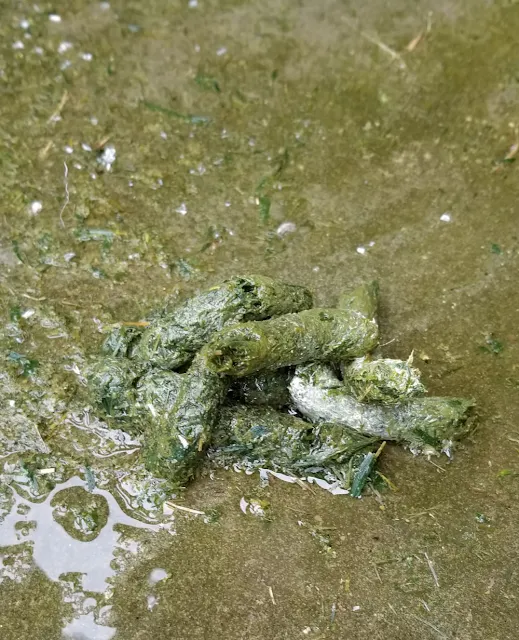
Goose Poop Composition
Goose droppings are just over 75% water. In the warm weather when your geese are drinking more water, the tubes will be wetter than when the geese aren't drinking as much.
Like chickens and ducks, geese don't "pee", but instead their droppings are a combination of solid and liquid, combined before they exit the goose's body.
This is partly because flying birds (although domestic chickens, ducks and geese don't fly!), can't afford to carry any excess water weight/urine. They expel excess nitrogen from their body in the form of urates or uric acid which appear as "white caps" on the top or ends of the poop.
The droppings can also be very caustic, so hosing off patios, decks and stone walkways is important unless you want your paint to start peeling and your stone to become pitted.
Fortunately, it's pretty easy to hose goose poop off hard surfaces. And in the lawn, it dries up pretty quickly and seeps into the ground when it rains.
Goose Poop Frequency
So here's where things get a bit messy!
The average goose poops about every 12 minutes or so, which translates to more than 100 times a day per goose. Yup, that's a lot of pooping!
Foraging geese will eat about four pounds of grass a day and turn that into into about 2 pounds of droppings Every. single. day. That's a lot of poop, but it's also mostly water, as I mentioned earlier. And lots of chopped up grass matter.
So really, when you raise geese, it's just like having little lawnmowers cutting your lawn and then depositing the chopped grass back onto the lawn as fertilizer.
Eat. Poop. Repeat.
Another interesting factoid is that geese don't have a crop or gizzard like chickens and ducks do. Both chickens and ducks tend to poop mostly overnight, since they collect the food they eat throughout the day and then digest and expel it while they sleep.
But geese are different. They don't collect the grass they eat, instead they eat and poop all day long. You might think this is a negative, but there's actually a huge benefit to geese not saving up all their poop.
Their house and bedding stay remarkably clean. At most, the geese might each poop once more after I lock them up at night, and sometimes not even once if they have pooped just before going to bed.
As a result, I rarely have to change the straw in the goose house. It doesn't end up littered with poop like our chicken coop.
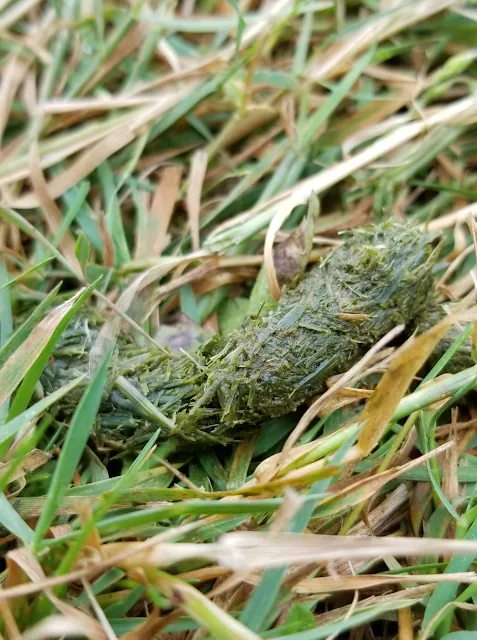
Goose Poop as Fertilizer
Goose droppings makes wonderful, nutrient-rich fertilizer. The droppings contain lots of carbon, as well as nitrogen andphosphorus when dried, giving them a fertilizer value of close to 2-4-2, which makes it a very good-quality fertilizer for vegetable gardens.
If you decide to collect any goose droppings for the garden, they do need to be composted and aged like other types of animal fertilizer. The high nitrogen levels will burn plants if you don't let the droppings age.
And while goose droppings are an excellent fertilizer, they can carry E.coli, cryptosporidium, giardia, listeria and Campylobacter bacteria, so along with aging them, it's important to use proper precautions - wash your vegetables if you use goose poop as fertilizer in the garden and wash your hands after coming in contact with it.
So yes, geese do create a lot of waste, but so do nearly any type of livestock. It's beneficial for the garden, and in small amount, even the lawn. It's nitrogen-rich which will make your grass grow in nice and green and healthy.
Geese are meant to wander, eating grass and weeds, and not be penned up. As long as they have a large area to roam, their droppings should be pretty well spread over the entire area and not become a nuisance for you.
But keep the hose handy, because if they have the habit of climbing up onto your deck or hanging out on your patio, you're going to want to spray those areas off on a regular basis.
So while our lawn doesn't look exactly like a golf course, the grass does grow in nice and thick and green. And I think we have the geese to thank for that!
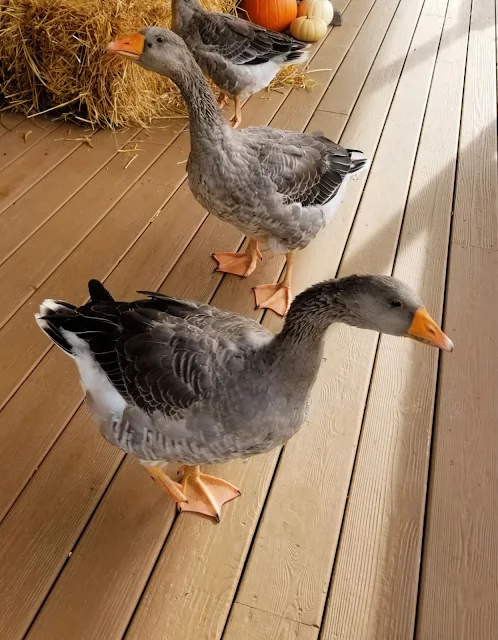
Pin This!
Further Reading
http://scienceline.ucsb.edu/getkey.php?key=4448
http://www.waldeneffect.org/blog/Collecting_goose_manure_for_the_garden/

Join me here
Facebook | Twitter | Instagram | YouTube
©2020 by Fresh Eggs Daily, Inc. All rights reserved.







